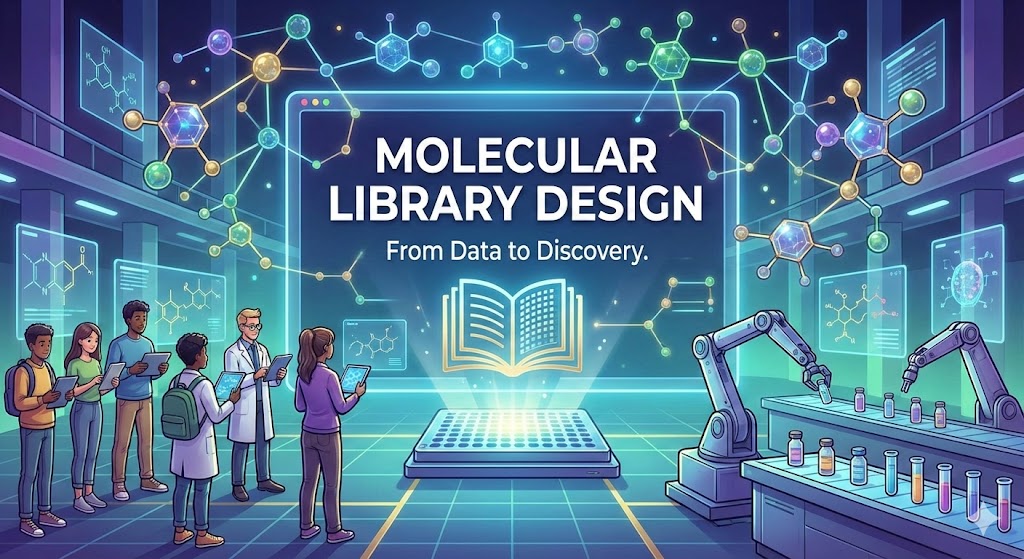ChemoInfoPlus
Molecular Library Design
Learn how to design and evaluate small-molecule libraries for discovery—from clean data to smart selection, ADME basics, and plate-ready feasibility.

About This Course
Modern discovery projects succeed or stall based on the quality of their screening libraries. This course provides a practical, end-to-end playbook for building fit-for-purpose libraries, covering how to curate vendor data, represent chemistry with descriptors, compare molecules with appropriate distances, and utilise clustering and subset selection to balance diversity with focus. You will learn how to set ADME guardrails without crushing novelty, evaluate vendor and make-on-demand options, and turn virtual picks into assay-ready plates with feasibility-aware design.
Each module combines concise concepts with checklists, pseudocode, and decision templates that can be applied in any toolchain (e.g., RDKit). Worked micro-recipes show how to compose methods—facility-location with MaxMin, medoids with sphere exclusion, wildcard quotas with property windows—to produce reproducible, traceable libraries. The capstone task requires you to develop a mini-strategy for a 5K-compound set tailored to a biological scenario, including KPIs, countermeasures, and a pilot-plate plan.
By the end, you’ll be able to justify your design choices to both chemists and biologists, ship cleaner plate maps to screening teams, and iterate quickly from first hits to tractable series—without wasting budget or time.
Requirements
- Familiarity with basic organic/medicinal chemistry (functional groups, scaffolds, simple ADME concepts).
- Comfort with data analysis; experience with Python/RDKit is helpful but not required.
- Ability to read distribution plots and interpret simple clustering/selection metrics.
- Interest in practical HTS operations (plate formats, QC, counterscreens).
Course Staff

Prof. Senderowitz is a computational chemist with extensive experience in molecular modelling, cheminformatics, and data-driven discovery. He focuses on practical methods that bridge algorithmic selection with medicinal chemistry insight, and has mentored numerous teams on library design and hit triage.

Asst. Prof. Podlipnik specialises in molecular simulation and property modelling. His work connects physics-based insights with screening pragmatics—ADME guardrails, nuisance risk, and feasibility—so that library selections translate into reliable assay outcomes.
Frequently Asked Questions
What web browser should I use?
The Open edX platform works best with current versions of Chrome, Edge, Firefox, or Safari. See our list of supported browsers for the most up-to-date information.
Who teaches this course?
The course is taught by Prof. Hanoch Senderowitz and Asst. Prof. Črtomir Podlipnik.
